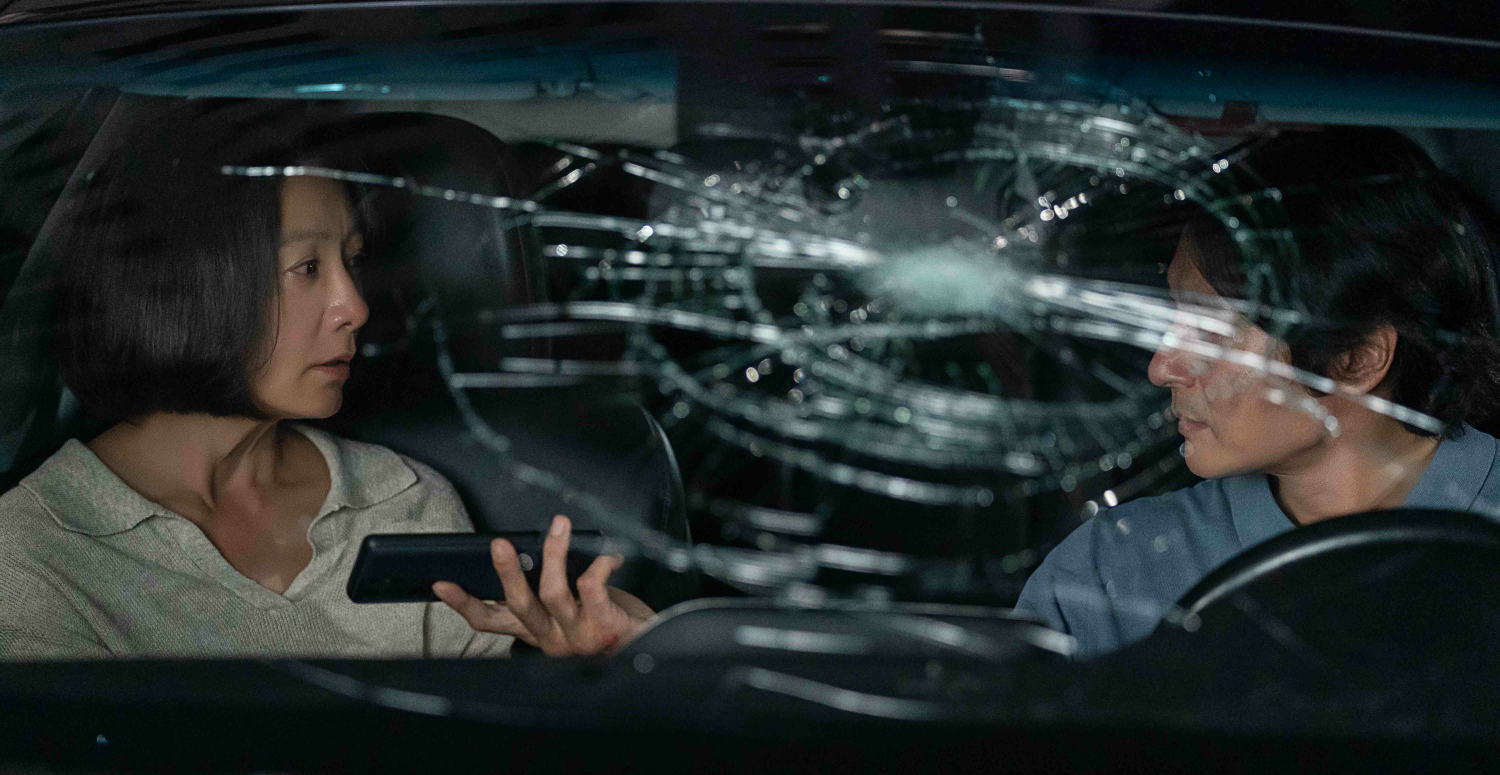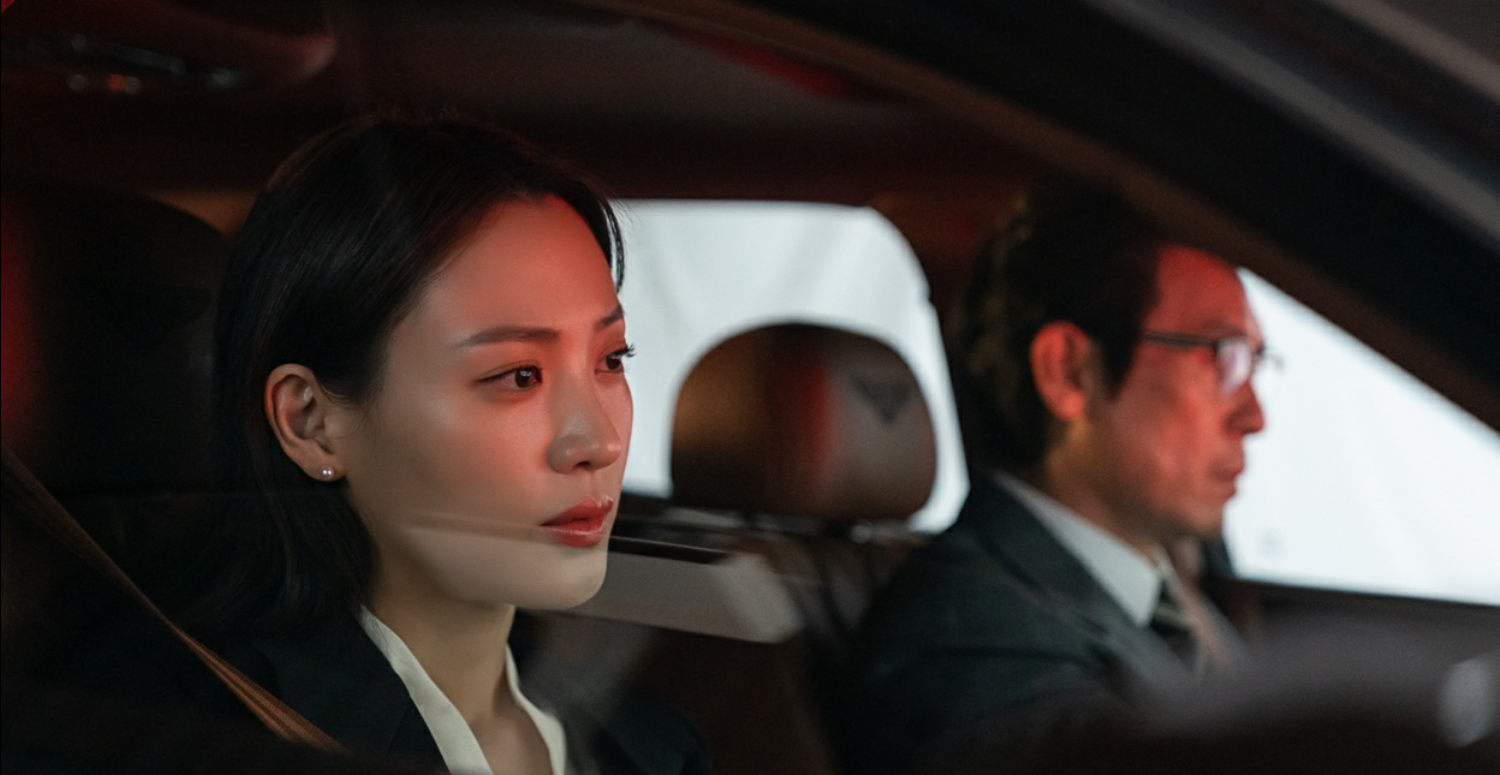A Normal Family
보통의 가족
Best Supporting Actres – South Korea
2023/2025

FR EN
Dans la veine de la décapante Palme d’Or oscarisée « Parasite » de Bong Joon-ho, cette nouvelle satire sud-coréenne brosse un nouveau portrait amer de la société autour de deux frères, l’un avocat matérialiste et l’autre chirurgien idéaliste. Dans cette famille bourgeoise se voulant ‘normale’, les dîners de famille dans un luxueux restaurant sont devenus un rituel obligatoire où les deux hommes et leurs épouses se retrouvent en faisant à peine semblant de ‘faire famille’ quand leurs enfants, eux, tissent de vrais liens. Mais lorsqu’une affaire criminelle impliquant les deux frères, explose sur la scène médiatique, leur sens de la morale va vite être mis à rude épreuve …
Si ce fragile équilibre hypocrite semble convenir à cette fratrie dysfonctionnelle, il est source de jalousies aigries, de rapports houleux, et d’amours parental soumis à de profondes secousses sismiques. Dans ce théâtre éthique à géométrie variable, « A Normal Family » mêle l’intime et l’immoral dans un cocon familial sous pression où la rage trop longtemps contenue est prête à imploser. Le film met en lumière le point de rupture entre la violence symbolique et la violence réelle qui se cache en nous, en questionnant ce qui nous ferait abandonner nos si précieux principes en opposant solidarité et amour des siens à justice et éthique. Car même dans une famille qui ne s’aime pas et se méprise, le seul centre d’intérêt commun reste leurs enfants (rois). Mais à quel point connaissons-nous réellement nos enfants ? Et jusqu’où peut-on aller pour eux ?
Bien que ce conte sarcastique sur l’élasticité de notre propre morale pourrait paraître typiquement coréen, c’est pourtant une (excellente) adaptation – la quatrième au cinéma – du roman néerlandais « Le Dîner » d’Herman Koch dont le fin scénario explore la psychologie de ses quatre protagonistes en décortiquant leurs relations et étudiant leurs faces cachées. C’est à la fois un thriller psychologique, un huis-clos familial, une étude des mœurs, et une diatribe sociale qui scrute l’effarante perte de valeurs humaines dans nos relations aux écrans et à la violence en jouant sobrement des réseaux-sociaux. L’intrigue aligne habilement les retournements de comportements forçant le spectateur à changer de perspective au gré des oppositions morales entre les personnages. En somme, c’est un film qui met en scène une évolution de ses dilemmes contradictoires, effaçant toute notion de bien et de mal et interrogeant ainsi son spectateur.

Pour mettre en scène cette effrayante réflexion et cette féroce critique d’une société sud-coréenne pétrie de contradictions, Hur Jin-ho opte pour une mise en scène élégante aux ambiances des plus feutrées et froides dans des cadres géométriques exacerbant l’anxiété des décors jusque dans une séquence finale bouclant magistralement la boucle. Ce réalisateur un peu sous-coté dont très peu de films arrivent jusqu’à chez nous (The Last Princess ; Forbidden Dream), signe ici une satire cinglante de la haute société, de la famille ‘idéale’, et de l’adolescence dans une intrigue haletante, cynique et déstabilisante de bout en bout portée par six impeccables comédiens.
Raphaël Sallenave
In the wake of Bong Joon-ho’s Oscar-winning Palme d’Or “Parasite”, this new South Korean satire draws a bitter new portrait of society around two brothers, one a materialistic lawyer and the other an idealistic surgeon. In this bourgeois, self-proclaimed “normal” family, dinners at a luxurious restaurant have become a compulsory ritual, where the two men and their wives meet up, barely pretending to act like a “family”, while their children really do bond. But when a criminal case involving both brothers bursts onto the media scene, their moral compass is soon put to the test…
This fragile, hypocritical balance may seem to suit the dysfunctional siblings, but it’s also a source of bitter jealousy, stormy relationships and parental affections subject to deep seismic shocks. In this ethical theater of flexible boundaries, “A Normal Family” blends the intimate and the immoral in a pressure-cooker household where rage held in check for too long is ready to implode. The film sheds light on the breaking point between symbolic violence and real violence that lurks within us, questioning what would make us surrender our most precious principles by pitting solidarity and love of one’s loved ones against justice and ethics. After all, even in a family that dislikes and despises each other, the only thing they have in common is their (king-like) children. But how well do we really know our own children? And how far can we actually go for them?
Although this sarcastic tale of the elasticity of our own morality might seem typically Korean, it is in fact an adaptation (and an excellent one at that) – in fact, the fourth to be made into a film – of Herman Koch’s Dutch novel “The Dinner”, whose clever script explores the psychology of its four protagonists, dissecting their relationships and studying their hidden sides. It’s at once a psychological thriller, a family portrait, a study of social mores and a social commentary on the appalling loss of human values in our approach to screens and violence, with a subtle use of social networks. The plot deftly aligns reversals of behavior, forcing the viewer to change perspective as the characters clash morally. Ultimately, this is a film that explores the evolution of contradictory dilemmas, obliterating any notion of right and wrong, and thereby challenging the viewer.

To bring this frightening reflection and fierce critique of a South Korean society riddled with contradictions to the screen, Hur Jin-ho adopts an elegantly staged style, with cold, subdued atmospheres and geometric frames that exacerbate the anxiety of the scenery, right up to the final sequence that brilliantly brings the film full circle. This somewhat underrated director, whose films rarely reach our shores (The Last Princess; Forbidden Dream), delivers here a scathing satire of high society, of the ‘ideal’ family, and of adolescence in a breathless, cynical and unsettling plot from start to finish, driven by six outstanding actors.
Raphaël Sallenave

